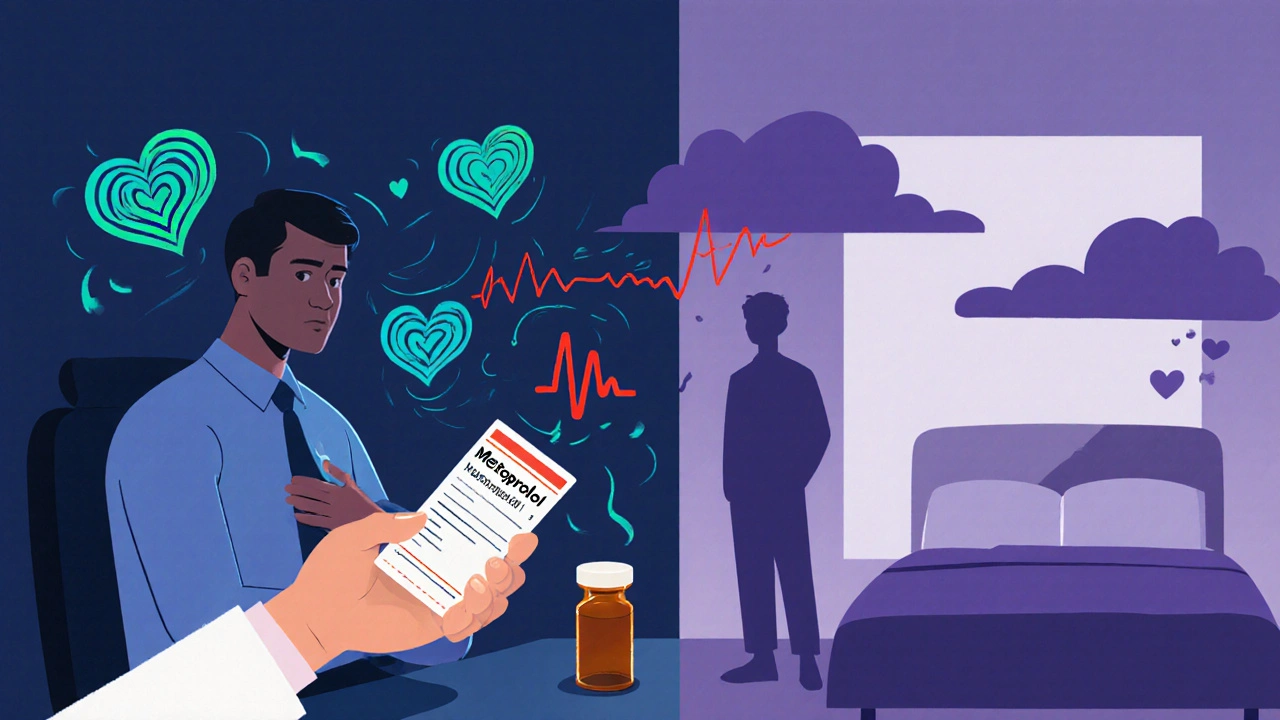Metoprolol: What It Is, How It Works, and What Alternatives Exist
When your doctor prescribes Metoprolol, a beta blocker used to treat high blood pressure, heart rhythm issues, and chest pain. Also known as Lopressor or Toprol-XL, it works by slowing your heart rate and reducing the force of your heartbeat, which lowers blood pressure and takes stress off your heart. It’s not a cure, but it’s one of the most widely used tools to manage heart conditions long-term.
Metoprolol belongs to a group of drugs called beta blockers, medications that block adrenaline’s effects on the heart and blood vessels. These drugs don’t just treat high blood pressure—they’re also used after heart attacks, for irregular heartbeats, and even to prevent migraines. Other beta blockers, like atenolol, propranolol, and bisoprolol, work similarly but may have different side effects or dosing schedules. For example, some are short-acting and need to be taken twice a day, while Metoprolol succinate (Toprol-XL) is long-acting and often taken just once. If you’ve tried one beta blocker and had side effects like fatigue or dizziness, another might work better for you.
People often ask if Metoprolol is the best choice, or if there are safer, cheaper, or more effective options. The answer depends on your condition. If you have heart failure, Metoprolol is often preferred over other beta blockers because of strong clinical evidence. But if you have asthma or severe allergies, your doctor might avoid it entirely—beta blockers can tighten airways. That’s where calcium channel blockers, like amlodipine or diltiazem, come in. They lower blood pressure without affecting your lungs. Or if your main issue is fluid retention, a diuretic, like hydrochlorothiazide, might be added or used alone. It’s not about finding the "best" drug—it’s about finding the right fit for your body, your lifestyle, and your other health issues.
Side effects are common but often mild: tiredness, cold hands, dizziness, or a slow heartbeat. Most people adjust within a few weeks. But if you feel faint, have trouble breathing, or notice swelling in your legs, talk to your doctor right away. Never stop Metoprolol suddenly—it can trigger chest pain or even a heart attack. Tapering off under medical supervision is key.
Below, you’ll find real comparisons between Metoprolol and other heart medications. We’ve pulled together guides that break down how it stacks up against alternatives like atenolol, bisoprolol, and even non-beta blocker options. You’ll see what works for whom, what side effects to expect, and how cost and dosing play into the decision. Whether you’re newly prescribed Metoprolol or looking to switch, these posts give you the facts—not the fluff—so you can have smarter conversations with your doctor.
Metoprolol and Erectile Dysfunction: Key Facts Every Man Should Know
Learn how metoprolol may affect erectile function, understand the science behind the link, and discover actionable steps to protect your sexual health while managing blood pressure.
More
